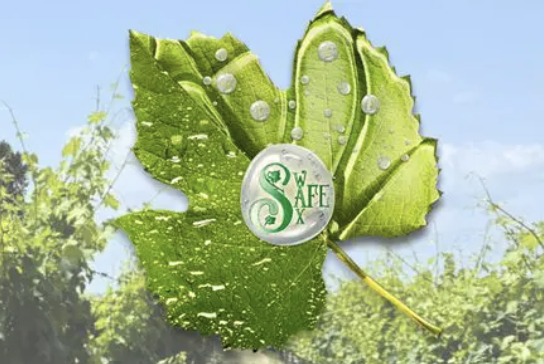Première ! Université Ben Gourion et Netafim (Israël) : le goutte-à-goutte pour irriguer le riz bio en Californie. Vidéo

[:fr]En Californie, la sécheresse est une préoccupation constante des producteurs car cette région produit un tiers des fruits et légumes des Etats-Unis. « L’eau est devenue tellement rare que les exploitants vont la puiser non pas dans la nappe phréatique, mais dans des nappes souterraines bien plus profondes, enrichies à l’époque de l’âge de glace », expliquait en novembre dernier le journaliste de France 2 Jacques Cardoze. Israël Science Info souligne : l’expérience que vont mener l’Université Ben Gourion du Néguev et Netafim USA* pour aider les exploitations agricoles Lundberg, en partenariat avec le Ranch Conaway, pour réduire leur consommation d’eau nécessaire à la culture du riz bio sans OGM, est donc d’une importance capitale. Cette démarche d’agriculture durable mise sur l’expertise israélienne dans les technologies de l’eau, l’irrigation au goutte-à-goutte enterré, et va démarrer ce printemps à Woodland (Californie).
« Ce sera la toute première utilisation du goutte à goutte aux États-Unis pour la culture du riz», explique Kyriakos Tsakopoulos, PDG de Conaway, un ranch de 17 000 ares (environ 70 km2). Il précise : « Nous ne pouvions rêver meilleurs partenaires : l’institut Zuckerberg de recherche sur l’eau à l’Université Ben Gourion et Netafim USA possèdent tous deux l’expérience de la culture du riz dans les régions arides. Les autres fermes pourront s’inspirer de cette expérience et ainsi économiser d’énormes quantités d’eau en Californie si cette technique est largement adoptée ».
Ce projet va évaluer si le riz peut être cultivé efficacement avec l’irrigation au goutte-à-goutte enterré. Un ensemble de tuyaux amènera l’eau directement à la racine de la plante, ce qui permettra de réduire la consommation d’eau, d’utiliser moins d’engrais et de mieux contrôler les mauvaises herbes.
« En tant que partenaire dans ce projet d’avant-garde, nous espérons que ce concept pourrait fournir aux agriculteurs une forme révolutionnaire de production du riz non seulement en Californie, mais partout dans le monde », dit Bryce Lundberg, vice-président des Lundberg Family Farms, une entreprise familiale, l’un des plus grands producteurs mondiaux de riz biologique et de produits céréaliers à grains entiers. «Nous cherchons continuellement à mettre en œuvre de nouvelles technologies qui peuvent bénéficier aux producteurs et à promouvoir des pratiques agricoles durables. Nous espérons que ce projet mené avec les israéliens sera reproductible. »
Au cours des 18 derniers mois, le Pr Eilon Adar de l’Université Ben-Gourion du Néguev (BGU) s’est rendu plusieurs fois en Californie où il a rencontré les législateurs et les responsables des ressources en eau. Il leur expliqué « comment Israël, pays aride, a créé un excédent d’eau grâce aux innovations, aux politiques de gestion de l’eau efficaces et aux technologies israéliennes ».
Auteur : Esther Amar pour Israël Science Info, présidente de l’AJE, Association des Journalistes de l’Environnement
* Filiale de Netafim, leader mondial du goutte-à-goutte. Récemment le fonds d’investissement Permira a acquis 61 % du capital de Netafim, société israélienne, sur la base d’une valorisation de 900 M$. Permira, société de capital-risque, possède douze bureaux en Europe, aux Etats-Unis et en Asie. Le kibboutz Hatzerim conserve 33 % du capital de Netafim (19 usines dans le monde, 3 en Israël, plus de 4 000 salariés). source Le Figaro
[:en]The first sustainable farming initiative leveraging Israel’s unparalleled research and innovation in water technology to reduce rice-crop water use will begin this spring at Conaway Ranch in Woodland, California. The project was announced at the American Israel Public Affairs Committee (AIPAC) Policy Conference in Washington, D.C. on March 20.
“We believe this initiative represents the first use of drip irrigation in the U.S. for a rice crop,” explains Kyriakos Tsakopoulos, president, principal and chief executive officer of Conaway Preservation Group, which owns the 17,000-acre Conaway Ranch. “We couldn’t ask for better partners: Ben-Gurion University of the Negev’s Zuckerberg Institute for Water Research and Netafim USA, the world’s leading drip irrigation manufacturer, both of which have experience growing rice in arid regions. This effort could serve as a model for other farms and potentially save hundreds of thousands of acre feet of water in California if widely adopted.”
Drought is a continued concern for growers in California, and this project seeks to better understand if rice can be grown effectively with sub-surface drip irrigation. The method consists of a series of pipes that deliver water directly to the root zone of the plant and has the potential to reduce rice-crop water usage, as well as save on application of fertilizers and improve weed control.
“As a partner in this cutting-edge project, we are hopeful that this concept could provide farmers with a revolutionary form of rice production not only in California, but wherever rice is grown worldwide,” says Bryce Lundberg, vice president of agriculture for Lundberg Family Farms, which is one of the world’s largest producers of organic rice and whole grain products. “We are always looking to implement new technologies that can benefit growers and promote sustainable farming practices, and we hope that the project’s success can be duplicated to improve organic weed management while producing environmental and conservation benefits.”
Over the past 18 months, Ben-Gurion University of the Negev (BGU) Prof. Eilon Adar has visited several times to meet with California legislators and water resource officials, discussing how Israel, an arid country, has created a surplus of water through innovation, technology and effective water management policies. For this project, Conaway Ranch executives are leveraging the expertise of Prof. Adar, who is one of Israel’s leading water experts and former director of the Zuckerberg Institute at BGU’s Jacob Blaustein Institutes for Desert Research.
“After evaluating a number of options to enhance water use efficiency, Conaway Ranch decided to move forward with a subsurface drip irrigation pilot project on a 50- to 100-acre area for rice,” Prof. Adar explains. “We’ve outlined the testing procedures necessary to maximize success, based on experience growing a variety of crops in arid climates using sub-surface drip irrigation. The Zuckerberg Institute is pleased to be playing a leading role, providing knowledge and expertise to help California farmers reduce their water consumption.”
In meetings and at public forums, Prof. Adar has highlighted ways Israel is closing the gap between water supply and demand, including improving irrigation efficiency, expanding wastewater reclamation and reuse, as well as engineering drought-tolerant crops.
Netafim USA agronomists have conducted a few similar rice crop trials in other parts of the world. Installation of the system and the first plantings at Conaway Ranch are scheduled for completion this spring. Based on results from previous projects, this trial is expected to produce an improvement in yield, while reducing water use.
“As drought conditions persist, efficiency in every aspect of farming is critical to the sustainability of California farming,” says Scott Warr, Netafim USA regional sales manager. “Through research trials and partnerships, Netafim continues to be committed to providing growers with access to viable solutions that address the challenge of maintaining profitable farming in a resource-limited world.”
“We fully believe that Conaway Ranch and farmers have a responsibility to conserve water,” Tsakopoulos says. “We need to continue to conduct research and develop methods to use the water most efficiently for crops, while also conserving critical wildlife resources.”
“By researching drip irrigation technology for rice cultivation, the Conaway Ranch owners are demonstrating their commitment to smart water conservation and long-term sustainability,” says Woodland California Mayor Tom Stallard. “We are so pleased to see this progressive practice being studied so close to our community.”
About Conaway Preservation Group
Conaway Preservation Group owns and operates Conaway Ranch, a century-old 17,000 acre ranch located in the heart of northern central California’s Pacific Flyway. Conaway Ranch has distinguished itself as a conscientious and energetic pioneer in conservation leadership by developing wildlife-friendly agricultural practices that sustain and protect the agricultural value of the land, while also enhancing the natural plant and wildlife habitat. Conaway offers educational outreach programs, financial support for local charitable organizations, such as the Yolo County Food Bank, and partners with local, state and federal agencies to promote the betterment of wildlife conservation and responsible land stewardship.
About Lundberg Family Farms
Since 1937, the Lundberg family has been farming rice and producing rice products at their farms in the Sacramento Valley. Now led by its third generation, Lundberg Family Farms uses organic and eco- positive farming practices to produce wholesome, healthful rice products while protecting and improving the environment for future generations.
About Netafim USA
Netafim USA, based in Fresno, California, develops and manufactures drip irrigation systems for agriculture, landscape and turf, greenhouse and nursery, mining and wastewater. Netafim offers an extensive range of irrigation solutions, including driplines, filters, sprinklers, valves, water meters, and automation equipment for complete dripline system installations.
About Zuckerberg Institute for Water Research
The Zuckerberg Institute for Water Research, Israel’s largest and leading water institute, conducts interdisciplinary, cutting-edge research and graduate education in water sciences and technologies, aimed at improving human well-being through technologies and policies for sustainable use of water resources. World-renowned Zuckerberg Institute researchers are focused on desalination technologies and groundwater production, water quality and environmental aquatic microbiology, as well as water resource management. Zuckerberg Institute graduate programs attract students from all corners of the world who are involved in research projects and collaborations in both developed and underdeveloped countries. Named for New York philanthropist Roy J. Zuckerberg, the Institute was founded in 2002 within the Jacob Blaustein Institutes for Desert Research at the Sede Boqer Campus of Ben-Gurion University of the Negev.[:]







